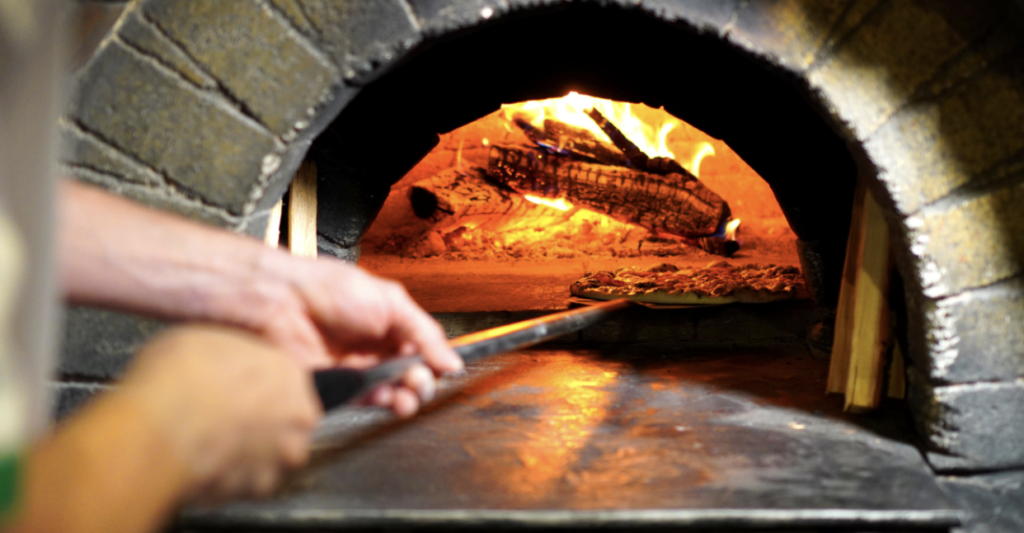
Calling all pizza lovers and environmental enthusiasts! If you think you’ve experienced the full flavor of New York City’s iconic pizza, think again. Get ready for a piping-hot, mouthwatering twist to the NYC pizza scene. Enter Local Law 38, a rule approved in 2015 by pizza aficionado and former Mayor Bill de Blasio, the game-changing regulation that’s turning up the heat on carbon emissions and giving your favorite cheesy slices a whole new eco-friendly flavor.
The Sizzle Behind Local Law 38
Picture this: the bustling streets of NYC, the aroma of freshly baked dough, and a city known for its love affair with pizza. But beneath the surface, the carbon footprint left behind by this beloved culinary delight is a cause for concern. Enter Local Law 38, the NYC Department of Environmental Protection’s new rule targeting pollutant-spewing coal-and-wood-fired ovens to slice carbon emissions by up to 75%.
Slicing Through Carbon Emissions
Under Local Law 38, pizza businesses are encouraged to adopt energy-efficient equipment and practices, paving the way for a greener and more sustainable future. Traditional brick ovens, while iconic, are known for their excessive energy consumption and carbon emissions. However, with this new edict, pizzerias are urged to transition to cleaner, more energy-efficient alternatives. From high-tech electric ovens to smart ventilation systems, the pizza industry is stepping up its game while delivering the same delightful taste.
A Saucy Competitive Edge
Beyond the environmental impact, Local Law 38 has a sizzling effect on the NYC pizza business itself. Pizzerias that embrace this green initiative gain a competitive edge, capturing the hearts of eco-conscious customers who crave a delectable slice without the side of guilt. By taking a stand against carbon emissions, these pizzerias enhance their brand image, attract a wider customer base, and set themselves apart in a crowded market.
A Topping of Financial Strain
One of the key concerns for pizzerias affected by Local Law 38 is the financial strain it places on business owners. Upgrading to energy-efficient ovens and implementing other sustainable measures often requires a significant investment. Small pizzerias, already operating on thin profit margins, may find it challenging to allocate the necessary funds for these expensive upgrades. The additional burden of compliance costs can lead to increased menu prices, potentially deterring price-sensitive customers.
The Impact on Traditional Pizza Craftsmanship
The heart and soul of New York City pizza lies in its traditional craftsmanship. Local Law 38 may inadvertently disrupt the artistry and authenticity of pizza-making by encouraging a shift towards newer, more energy-efficient equipment. While reducing carbon emissions is crucial, it’s vital to strike a balance that preserves the unique flavors and techniques that make NYC pizza so iconic.
A Slice of Sustainability
Local Law 38 has inspired a broader movement within the pizza community, fostering a culture of sustainability that extends beyond the oven. Many pizzerias have started exploring locally sourced ingredients, composting programs, and even innovative packaging solutions. This commitment to sustainability resonates with customers who are seeking not just a delicious meal, but an experience that aligns with their values.
The sizzle behind Local Law 38 is undeniable. As New York City’s pizza industry rises to the challenge, the impact on carbon emissions is already making a significant difference. With energy-efficient equipment, smarter practices, and a commitment to sustainability, pizzerias are satisfying both appetites and environmental aspirations. So, the next time you sink your teeth into a classic NYC slice, relish not just the flavors but also the knowledge that you’re supporting a greener, more vibrant city—one slice at a time. Join the movement and let your taste buds savor the future of sustainable pizza!
Disclaimer: This blog post is intended for promotional purposes only and is not to be construed as legal advice.





 Public Works Partners is a WBE/DBE-certified urban planning and consulting firm. Our expertise lies in creating innovative, equitable, and sustainable solutions to complex problems.
Public Works Partners is a WBE/DBE-certified urban planning and consulting firm. Our expertise lies in creating innovative, equitable, and sustainable solutions to complex problems.